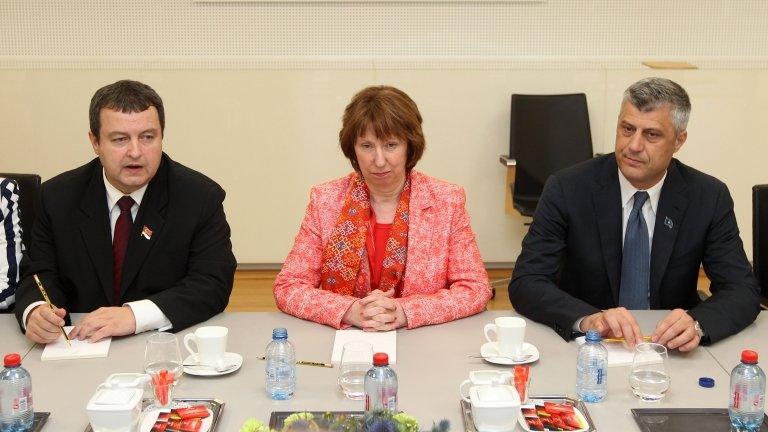Serbia transforming from pariah to EU partner
- Published
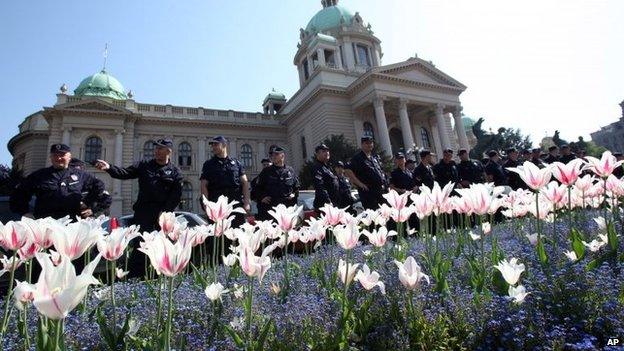
Serbia is modernising, but there are still tensions within the country, particularly over Kosovo
To get an idea of how quickly things have changed in Serbia, a visitor just needs to take a walk down one of its capital's main roads.
The bomb-blasted government buildings on Prince Milos Boulevard have remained in their ripped-open state since Nato air strikes in 1999. The destruction contributed to the demise of the oppressive, ultra-nationalist government of Slobodan Milosevic a year later.
At that point it would have been hard to picture Serbia as a member of the European Union. And it would have seemed fantastic to imagine that former Milosevic allies would have put the country on the path to accession.
But that is precisely what has happened.
The start of formal EU accession talks has come after a concerted push by the government which came to power in July 2012. Its leader - in reality if not in title - is First Deputy Prime Minister and leader of the Progressive Party, Aleksandar Vucic.
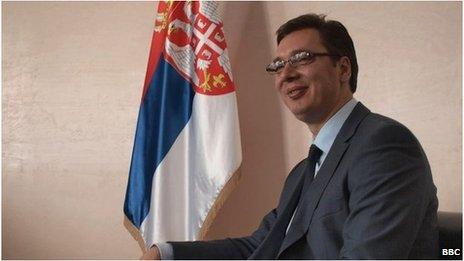
Authoritarian censor to EU champion: Deputy Prime Minister Aleksandar Vucic
He is known as the man who can get things done. To give one key example: when talks to normalise relations between Serbia and Kosovo were in danger of grinding to a halt last April, Brussels called in Mr Vucic to seal the deal. That left the way clear for EU accession talks to start.
A misspent youth
But the Progressives' leader led a misspent youth. He was still in his twenties when he became minister of information in 1998. As protests against the Milosevic administration grew stronger, Mr Vucic introduced fines for journalists who opposed the government and banned foreign TV networks.
He says he had to admit he was wrong, and change.
"I was not ashamed to confess all my political mistakes," says Mr Vucic.
"After 1999 we saw the result of our politics - it was very bad in all social spheres. We had as many ruined bridges and buildings as you can imagine. That was the result of our politics. We need to find a better way for Serbia."
Mr Vucic says that means EU membership. Not so much for the money it would bring in, but to force Serbia into reforms which would bring it up to the same standards as other European countries.
"It is very much related to the modernisation of this country. We will have to change our mindsets, our habits, ourselves - and that is the most important thing."
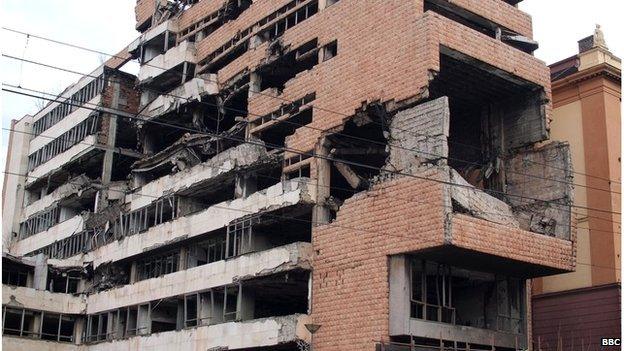
A reminder of a violent past: government buildings bombed by Nato in air strikes on Belgrade in 1999
Getting on the accession track meant compromise on Kosovo, which unilaterally declared its independence from Serbia in 2008. Previous governments in Belgrade had resisted strong pressure from the United States and many EU members to normalise relations with the breakaway republic - partly out of fear of upsetting Serbian nationalist groups.
But given their past, it was much harder to question the patriotic credentials of Mr Vucic and his colleagues. And after months of negotiations, an agreement with Kosovo was made last April.
Other policies have proved enormously popular with an electorate which had grown frustrated that the democratic dawn at the start of the millennium had failed to deliver economic prosperity. Notably, an anti-corruption campaign has targeted dozens of people suspected of illegally profiting from privatisations, including previously-untouchable tycoons.
Even some critics have been forced to revise their opinions of the sometime Milosevic ministers - who include Prime Minister Ivica Dacic and President Tomislav Nikolic, as well as Mr Vucic.
"They are different than before," Natasa Kandic, the founder of the Humanitarian Law Centre, told the BBC last year. "It's important that they have changed and are calling for democracy."
Doubts remain
Others are far from convinced - particularly the Democratic Party, which led governments from 2001 to 2012. It claims the anti-corruption campaign has only targeted its supporters - while leaving allies of the current administration untouched.
"The government is basically exploiting international support for the Kosovo issue, aiming to suppress the opposition and to block all democratisation efforts made so far," says Vladimir Todoric, a senior member of the Democratic Party.
"The pity is that the only priority for the international community here is the implementation of the Brussels agreement with Kosovo. And all things of an internal nature, in terms of prosecuting the opposition under the so-called fight against corruption, are not discussed."
The European Union denies that it has overlooked these issues and insists that, to attain membership, Serbia will have to pass exhaustive membership criteria. These include chapters on rule of law and human rights.
Those negotiations will take years - possibly the best part of a decade.
But if Serbia passes all 35 chapters it would finally be in place to complete its transformation. It would no longer be the pariah state of the 1990s - but a respected full member of the European Union.
- Published27 August 2013
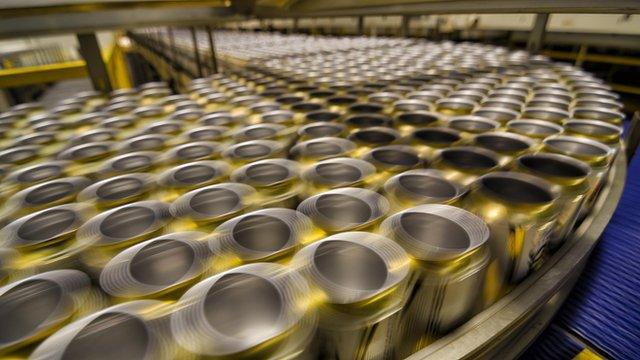
- Published2 September 2014
- Published28 November 2022
- Published28 June 2023
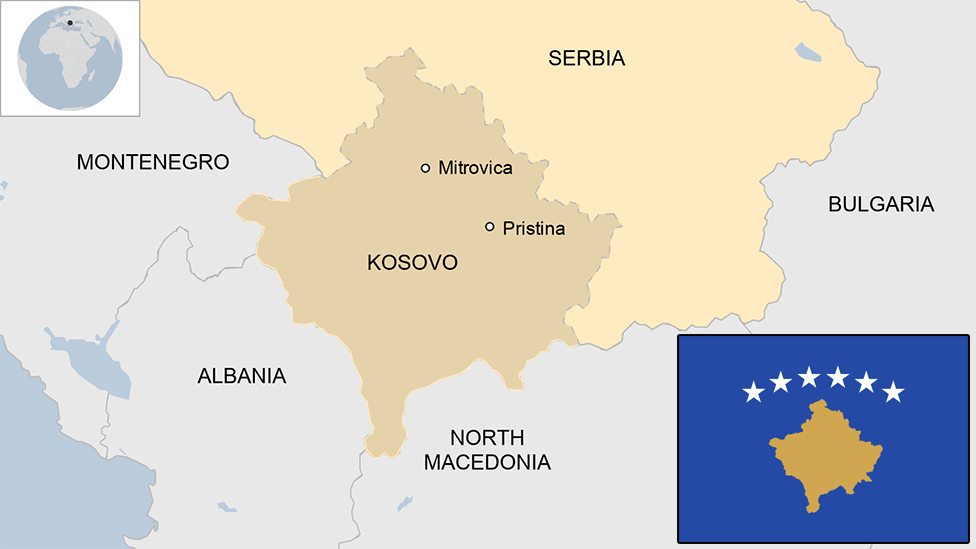
- Published19 April 2013
